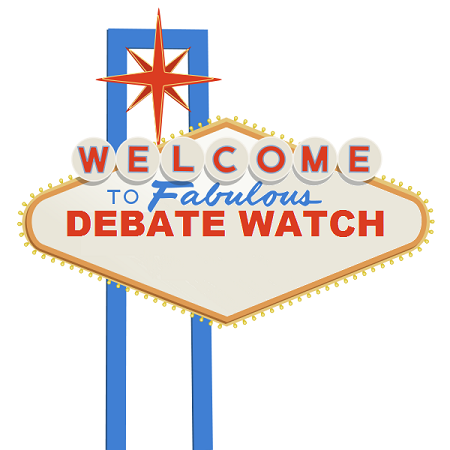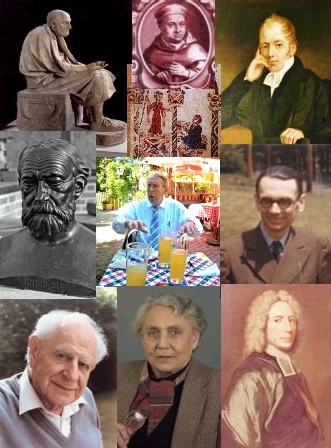Previous Month | RSS/XML | Current | Next Month
WEBLOG
October 31st, 2015 (Permalink)
A Puzzle for Hallowe'en
On Hallowe'en, a group of costumed children went trick-or-treating to five houses occupying one side of a city block. Each house was a different color―one was painted brown―and each was occupied by a different family―one family was named Takahashi. At each house they visited, the trick-or-treaters were given a different treat―at one house they received boxes of chocolate-covered raisins. Also, each house was home to a different pet. Using the following clues, can you solve the puzzle of the mystery pet?
- The trick-or-treaters spotted a goldfish in a bowl inside one of the houses they visited, but it was not in the first house on the block, which belongs to the Bergmann family.
- While stopping at the Lopez family's house, the trick-or-treaters could hear a dog barking from inside.
- In a window of one of the houses they visited they could see a cat sitting staring intently into the window of the house next door where a bird hopped about in a cage.
- The goldfish was not seen in the red brick house.
- At the house in the middle of the block the trick-or-treaters were treated to Milk Duds.
- The Bergmann family lives next door to the house painted blue, where the trick-or-treaters were given licorice.
- The house covered in green siding, where they gave out toffee as a treat, is to the immediate right of the white clapboard house.
- The Lopez family's house is to the left of, but not necessarily next door to, the one where the Romano family gave out candy apples to trick-or-treaters.
- The Addams family lives in the red brick house, which is not the last one on the block.
Which family keeps the mystery pet?
October 30th, 2015 (Permalink)
Debate Watch: Debaters vs. Moderators
The most recent debate ostensibly between the main Republican candidates for president actually turned out to be a debate between the moderators and the candidates. Consider the first question asked:
Carl Quintanilla: This series of debates is essentially a job interview with the American people. And in any job interview, you know this: you get asked, “what’s your biggest weakness?” So in 30 seconds, without telling us that you try too hard or that you’re a perfectionist[,] what is your biggest weakness and what are you doing to address it?
Source: "Transcript: Republican Presidential Debate", The New York Times, 10/28/2015
This is a no-win question for the candidates, since if they answer it honestly they provide a reason not to support them, and if they give the usual answer they look dishonest. The usual answer, of course, would be to cite as a "weakness" something that the audience would take to be a strength, such as "I'm just too honest to be a successful politician in today's cynical world". Moderator Quintanilla tried to rule out this type of answer, citing such supposed weaknesses as perfectionism and trying too hard. In effect, as an opening question, he's asking the candidates to give a reason why we shouldn't support them. Predictably, most of the candidates either dodged the question or gave the usual answer, which just makes them look like typical politicians.
Why start out a debate with a question that seems designed to make all of the candidates look bad? Presumably, most of the viewers of this debate are Republicans looking for information to help them decide who to vote for in the upcoming primaries. As a result, the questioning ought to focus on that goal, attempting to bring out substantive differences between the candidates that would help likely voters.
If you compare this to the most recent debate for the Democrats, the candidates in that earlier debate were simply given two minutes at the beginning to introduce themselves. Now, there were half as many candidates in that debate, but the Republicans were not given half as much time to answer the first question, but a quarter as much. Why couldn't the candidates in this debate be given a minute at the start to introduce themselves? Given the larger number of candidates, such introductions would be even more valuable than in the Democratic debate since many viewers were probably unfamiliar with some of the candidates. Moreover, none of the moderators of the Democratic debate ever asked the "job interview" question.
The role of moderators in these "debates" should be similar to the role of a judge in a trial. They are there to keep order by controlling who has the floor and fairly allotting time to speak. Also, in this type of candidate forum the moderators ask questions of the candidates, so an additional role is to try to guide the candidates into debating the relevant issues and keep them from wandering off onto irrelevancies.
The role of the moderators is, therefore, not to become part of the debates themselves, or to try to take center stage away from the debaters. It is just as wrong for moderators to inject themselves into debates by taking sides on the issues or candidates as it is for judges to side with either the prosecution or defense, and for the same reasons. Judges who did that in a court trial would probably be disciplined in some way, and debate moderators who do so should at the very least never be invited to moderate a debate again.
We saw a previous case of a moderator injecting herself into a debate and taking sides, namely, Candy Crowley in the second presidential debate of 2012―see Resource 1, below. Crowley, as far as I know, has not been reinvited to moderate any additional debates, as well she should not be. Crowley, however, made a single misstep in an entire debate, whereas the moderators of the current one turned it into a debate between themselves and the candidates, rather than a debate among the candidates. Consider the first question asked after the "job interview" question:
John Harwood: Mr. Trump, you’ve done very well in this campaign so far by promising to build a wall and make another country pay for it. Send 11 million people out of the country. Cut taxes $10 trillion without increasing the deficit. And make Americans better off because your greatness would replace the stupidity and incompetence of others. Let’s be honest. Is this a comic book version of a presidential campaign?
This is not the question of a neutral moderator, but of a prosecuting attorney cross-examining a hostile witness. Admittedly, this is probably the most egregious example from the entire evening, but many of the questions had a similar structure: the "moderator" would express an opinion and then ask for the candidate to respond.
The point is not whether Harwood is right or wrong in his criticisms of Trump's campaign, but that it was simply not his place as a moderator to make such a critique, any more than it would be the place of the judge to turn to the defense attorney in front of a jury and say: "Counselor, your client was seen at the scene of the crime. His fingerprints are all over the place. The murder weapon belonged to him. And now you tell us that his mother will provide him with an alibi. Let’s be honest. Is this a comic book version of a defense?"
Such a judge wouldn't last long on the bench, nor should "moderators" such as this ever be asked to moderate another debate.
Resources:
- Second Presidential Debate Logic Check, Part 2, 10/20/2012
- Democratic Debate Logic Check, 10/15/2015
October 27th, 2015 (Permalink)
New Book: Mindware
Psychologist Richard Nisbett has a new book out titled Mindware: Tools for Smart Thinking. I haven't read it yet, of course, but it looks promising. There are chapters on correlation and causation (Part III), and Part V is titled "Thinking, Straight and Curved", with a chapter on logic (Chapter 13) and one on dialectic (Chapter 14)―an interesting choice, especially for a psychologist. The Boston Globe gave it a positive review―see the Source, below.
Source: Nick Romeo, "‘Mindware: Tools for Smart Thinking’ by Richard E. Nisbett", Boston Globe, 9/1/2015
October 23rd, 2015 (Permalink)
Blurb Watch: Truth
A blurb in an ad for the new movie Truth may give the truth, and nothing but the truth, but it doesn't give the whole truth about the critic's opinion of the movie:
| Blurb | Context |
|---|---|
| "CATE BLANCHETT GIVES ONE OF THE YEAR'S BEST PERFORMANCES."
-Lou Lumenick, NEW YORK POST |
Cate Blanchett gives one of the year’s best performances in “Truth” as Mary Mapes, who produced an infamous “60 Minutes” segment that got Dan Rather (played by Robert Redford) bounced from his CBS anchor chair after 24 years. This entertaining movie is also an impressive directorial debut by James Vanderbilt. But his script―based on a self-serving memoir by Mapes―wilfully twists the truth to defend the piece that led to Rather and Mapes’ joint fall from grace and greatly damaged the reputation of American journalists with the public. |
| Source: Ad for "Truth", The New York Times, 10/23/2015, p. C9 | Source: Lou Lumenick, "Take the ‘Truth’ of Dan Rather’s downfall with a barrel of salt", New York Post, 10/14/2015 |
In addition, Lumenick rated the movie only 2½ out of a possible four stars. Here's an alternative blurb that I doubt you'll be seeing in any ads for the movie:
"'TRUTH' WILFULLY TWISTS THE TRUTH!"
-Lou Lumenick, NEW YORK POST
October 17th, 2015 (Permalink)
Checking it Out
Check out Megan McArdle's recent column on the up side of politicization in science. Read the whole thing, but here's a brief summary:
…[W]hat happens when science isn’t politicized? Part of the answer may be: the epidemic of replication failures we now seem to be seeing. … A lot of research results [in economics] are getting published, and a lot of the interesting findings can’t be replicated, often because key data or instructions aren’t available. …[C]ases I can think of where the system worked are often political. … The debate has often been uncivil. But it is a robust debate in which scientists are hunting for problems in other scientists’ work. … We might wish that the volume of the debate was turned down a notch. But at least there’s serious science happening―and even better, that science is making its way to the news media and the public.
Source: Megan McArdle, "Research That's Just Too Good to Be Tested", Bloomberg View, 10/12/2015
I would prefer it―and I think that so would McArdle―if scientists would attempt to replicate the results of other scientists in their field as a matter of course, not of politics. Replication is not an optional step in scientific method. Also, economics is an unusually politicized "science", so it's not surprising that these examples tend to be political. It would be more surprising if a debate within economics were not political, which is one reason why I think that it's still an emerging science.

October 15th, 2015 (Permalink)
Democratic Debate Logic Check
…[A]ny man more right than his neighbors constitutes a majority of one….—Henry David Thoreau
Source: "Resistance to Civil Government (On the Duty of Civil Disobedience)"
It's that scary time of year again. No, I don't mean Hallowe'en, I mean the first Democratic "debate" of the presidential campaign. The "debate" was between Hillary Clinton, Bernie Sanders, and the three stooges those other guys, for the nomination of the Democratic Party. If you wonder why I put the word debate in scare quotes, see the Resource, below; also see it if you think I'm picking on the Democrats.
As usual in these logic checks, I will pick out a particular example of poor reasoning that I just happened to notice. The goal is not to do an exhaustive logical analysis of the entire debate, which would require a book, but to highlight a striking example of a fallacy in its natural habitat. The example that I will examine this time is in Senator Bernie Sanders' answer to the following question from moderator Anderson Cooper:
Anderson Cooper: Senator Sanders. A Gallup poll says half the country would not put a socialist in the White House. You call yourself a democratic socialist. How can any kind of socialist win a general election in the United States?Bernie Sanders: Well, we're gonna win because first, we're gonna explain what democratic socialism is. And what democratic socialism is about is saying that it is immoral and wrong that the top one-tenth of 1 percent in this country own almost as much wealth as the bottom 90 percent. … That when you look around the world, you see every other major country providing health care to all people as a right, except the United States. You see every other major country saying to moms that, when you have a baby, we're not gonna separate you from your newborn baby, because we are going to have medical and family paid leave, like every other country on Earth. Those are some of the principles that I believe in, and I think we should look to countries like Denmark, like Sweden and Norway, and learn from what they have accomplished for their working people.
Source: "The CNN Democratic debate transcript, annotated", The Washington Post, 10/13/2015
Sanders' last claim that "every other country on Earth" has paid family leave is at least an exaggeration, but my aim is not to do a fact check but a logic check. So, let's assume that all of the factual claims that Sanders makes are correct, in particular the claims that every "major" country except the U.S. provides health care to everyone "as a right", and that every country provides paid maternity leave. Apparently, Sanders' conclusion is that the U.S. should also regard health care as a right and provide paid maternity leave, since he says that "we are going to have" these things. So, these policies he advocates are constituents of, or consequences of, "democratic socialism".
However, the U.S. is different in many ways from other countries. Anderson Cooper replied to Sanders' argument: "Denmark is a country that has a population of 5.6 million people." Again, let's not get into the question of whether this is factually correct, though I do wonder how Cooper happened to have this fact at his fingertips―does Sanders make this appeal to Denmark so frequently that Cooper prepared to answer it by memorizing or writing down this piece of trivia? In any case, Cooper appears to be responding to Sanders' argument by pointing out a perhaps significant difference between Denmark and the U.S., namely, size of population. Similarly, when Cooper turned to Hillary Clinton for a response to Sanders, she replied:
Hillary Clinton: …[W]e are not Denmark. I love Denmark. We are the United States of America.
More importantly, the fact that many other countries adopt a policy―even that every other country does so―is not sufficient reason by itself that we should do so. Many of the nations in Europe are beginning to suffer serious economic problems from their extensive welfare states. It is by no means impossible for every other major nation to have adopted economic policies that might seem morally right in the short term, but are economically disastrous in the long run. Now, Sanders may have answers to these problems, but if so we need to hear and discuss them before adopting such policies rather than simply jumping on the socialism bandwagon.
Of all the Democratic candidates, Sanders should not be making such an argument. Look back at Cooper's question: if half the electorate would not even vote for a socialist, how many can actually be socialists? Would Sanders accept the argument that he ought to reject socialism because he was the only candidate on that stage in Las Vegas willing to defend it? Would he cease being one because so few of his fellow Americans are socialists? I assume not. Neither should we accept his argument that we should all become socialists because everybody else is doing it.
Resource: Debate Watch, 9/17/2015
Fallacy: The Bandwagon Fallacy
Reader Response (11/2/2015): In response to my question about how many people could be socialists if half would not even vote for a socialist, a reader known only as Tony writes:

All of them. If half the electorate would not even vote for a candidate that lied, how many can actually be liars? If half the electorate would not even vote for a candidate that curses, how many can actually be people that curse? Or to turn it around, if half the electorate would not even vote for a candidate under 50, how many can actually be under 50? Socialism is a label people have been taught to reject without ever knowing what it means. In a recent interview with Sanders' supporters, one convert claimed (from my memory) "I don't like socialism, but I think we'd all be better off if college were free, that's what I am supporting." So if she knew nothing about Bernie's policy would she agree to vote for a socialist in a poll? Presumably not, as she doesn't like "socialism". She just likes socialist policies!
Perhaps I should have phrased my question as: "If half the electorate would not even vote for a candidate who calls himself a 'socialist', how many would call themselves 'socialists'?" You're certainly right that many of those who don't call themselves "socialist" may be so in some sense of the word, as the word is so vague and ambiguous. Six years ago, a cover story in Newsweek magazine told us that we're all socialists now. Similarly, some have claimed that the United States is already a socialist country, and apparently we just don't know it.
Traditionally, "socialism" referred to government ownership of the means of production, which usually meant that at least large industries and large tracts of land would be nationalized. In America, "socialist" and "socialism" tend to be negatively-loaded words―see the Resource, below―that is, words that convey disapproval in addition to whatever descriptive content they may have. As a result, American politicians have tended to avoid the label.
When, during the debate, Sanders sets out to explain to the American people what "democratic socialism" is, he doesn't define it, but cites three "principles that I believe in":
- Income inequality―at least on the scale of that between the top .1% and the bottom 90%―is immoral.
- Health care is a right.
- Mothers with newborn babies should have paid family and medical leave.
None of these policies would necessarily require that any of the means of production be nationalized. Surely, many capitalists or libertarians could agree that inordinate income inequality is immoral, but disagree that "socialism" is the way to remedy it. Similarly, I suppose that free college education could be supplied by nationalizing higher education, but it could also be done by the federal government subsidizing private education. So, in what sense is a free college education a socialist policy? Is Bernie Sanders even a socialist?
In the same debate, Hillary Clinton seemed to decline the term "socialism" in favor of "progressive". Here's what she said:
Anderson Cooper: Just let me just be clear. Is there anybody else on the stage who is not a capitalist?Hillary Clinton: Well, let me just follow-up on that, Anderson, because when I think about capitalism, I think about all the small businesses that were started because we have the opportunity and the freedom in our country for people to do that and to make a good living for themselves and their families. And I don't think we should confuse what we have to do every so often in America, which is save capitalism from itself. And I think what Senator Sanders is saying certainly makes sense in the terms of the inequality that we have. But we are not Denmark. I love Denmark. We are the United States of America. And it's our job to rein in the excesses of capitalism so that it doesn't run amok and doesn't cause the kind of inequities we're seeing in our economic system. But we would be making a grave mistake to turn our backs on what built the greatest middle class in the history of the world.
Surprisingly―or perhaps not―Sanders proceeded to agree with Clinton about the importance of supporting "small and medium-sized businesses". I suppose that doesn't rule out the nationalization of big business, and perhaps Sanders intends to do so if he's elected, but it appears from this debate that he's not running on that platform. However, it's unclear whether he and Clinton actually disagree on any of the policies that he raised, and Clinton specifically agreed with his denunciation of extreme income inequality. Rather, they appear to disagree on whether to call those policies "socialist" or "progressive".
Now, I'm not claiming that Sanders is not a "democratic socialist", or any other kind of "socialist". If he wants to call himself a "socialist", that's fine with me. He's free to define "democratic socialism" any way he wants to but, at least in this debate, he has not done so. I'm not a big fan of the notion that one should start out every discussion by defining one's terms, but in the case of "socialism" it's good advice.
Sources:
- Dieter Holger, "Bill Maher Endorses Bernie Sanders and Defends Socialism", Inquisitr, 10/17/2015.
- Bertrand Russell, Dictionary of the Mind, Matter and Morals (1952), "socialism".
- Hans Sperber & Travis Trittschuh, Dictionary of American Political Terms (1964), "socialism".
- Alan & Theresa von Altendorf, Isms: A Compendium of Concepts, Doctrines, Traits, and Beliefs from Ableism to Zygodactylism (1991), "socialism".
Resource: Loaded Words
October 12th, 2015 (Permalink)
What's new?
I've added another familiar contextomy to the―where else?―Familiar Contextomies page, this one a quote of the late Ben Bradlee taken out of context. Check it out.
Source: Familiar Contextomies: Ben Bradlee
October 7th, 2015 (Permalink)
How to lie with charts and graphs
Check out an analysis by statistician George Cobb of two recent misleading graphs. Read the whole thing―it's worth it! Also, if you want to learn how to spot these types of charts, see the relevant lessons from my series on charts and graphs from a couple of years ago listed under "Resources", below.
Source: George Cobb, "The Graph That Launched a Thousand News Stories", STATS, 10/6/2015
Resources:
- The Gee-Whiz Line Graph, 3/21/2013
- The Gee-Whiz Bar Graph, 4/4/2013
- The YY Graph, 11/19/2013
Added 11/19/2015:
- Kaiser Fung, "Egregious chart brings back bad memories", Junk Charts, 11/19/2015
- Linda Qiu, "Chart shown at Planned Parenthood hearing is misleading and 'ethically wrong'", Politifact, 10/1/2015

October 1st, 2015 (Permalink)
New Edition: Logic Gallery
Men are apt to mistake the strength of their feeling for the strength of their argument. The heated mind resents the chill touch and relentless scrutiny of logic.―William Ewart Gladstone
The fourth, expanded edition of David Marans' Logic Gallery is now available. Now with more philosophers! New to this edition are Apuleius, St. Augustine, Henri Bergson, Peter of Spain, Condillac, Condorcet, Moses Mendelssohn, and Almira Phelps. As if that isn't enough, the price is a mere $20, all of it donated to the
charitable organization Doctors Without Borders.

David suggests that I challenge you to identify all of the logicians pictured on the front and back covers, which you should be able to see to your right. Don't feel too bad if you can't name them all, as some are too small to see, and I can't name them all myself. For the answers you will need to see the book.
Source: David Marans, Logic Gallery (Fourth Edition, Enlarged 4.0)
Solution to a Puzzle for Hallowe'en: The Bergmann family has the mystery pet.